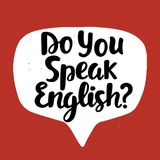Сегодня расскажу вам о нескольких английских словах, у которых есть необычные и интересные истории происхождения. Такие знания не только расширят ваш словарный запас, но и помогут запомнить слова на более глубоком уровне!
“Nightmare”
Это слово, означающее "кошмар", изначально состояло из двух частей: “night” (ночь) и “mare” (в древнегерманской мифологии “mara” — это дух, который вызывает плохие сны). Считалось, что такие духи садились на грудь спящему человеку, вызывая удушье и плохие сны.
“Salary”
Слово “salary” (зарплата) происходит от латинского слова “salarium”, которое связано с солью (“sal”). В Древнем Риме солдатам иногда платили солью, так как она была ценным товаром, отсюда и появилось слово, обозначающее оплату труда.
“Pandemonium”
Слово “pandemonium” означает “хаос” или “вселенский беспорядок”. Оно было создано английским поэтом Джоном Мильтоном в его поэме “Потерянный рай”. В оригинале это название столицы ада, где обитают все демоны. Со временем слово стало означать любой хаотичный или беспорядочный сценарий.
“Quarantine”
“Quarantine” (карантин) происходит от итальянского “quaranta giorni” (сорок дней). В XIV веке корабли, прибывавшие в Венецию во время чумы, должны были стоять на рейде сорок дней, прежде чем экипажу разрешалось сойти на берег.
“Hazard”
Слово “hazard” (опасность, риск) имеет арабское происхождение и связано с игрой в кости, называемой “al-zahr”. В средневековой Европе эта игра стала символом риска, а затем слово приобрело более общее значение, связанное с опасностью.
@thinkenglish
Please open Telegram to view this post
VIEW IN TELEGRAM
❤35👍20🔥6
A hobby is something you do regularly for fun and relaxation. It’s an activity that you enjoy in your free time, like reading, painting, or playing sports. It’s often something you invest time and energy in and can improve at over time.
- Examples of hobbies:
- Playing the guitar
- Collecting stamps
- Gardening
An interest is broader and can refer to something you’re curious about or enjoy learning more about, but it might not be something you actively do. You can be interested in something without it becoming a hobby or taking action on it.
- Examples of interests:
- Learning about space exploration
- Following current fashion trends
- Reading about ancient history
In everyday conversation, the word “interest” is often used more frequently because it’s broader and can apply to a wide range of things. You can have many interests, but you might only have a few hobbies that you actively practice.
For example, someone might say, "I'm interested in photography," even if they don’t regularly take pictures (which would make it a hobby). On the other hand, if they regularly take photos and develop their skills, it’s likely a hobby.
Did you know that in formal writing, especially resumes or job interviews, "interests" is more common? Phrases like "personal interests" or "areas of interest" sound broader and professional, while "hobbies" may sound a bit more casual.
@thinkenglish
Please open Telegram to view this post
VIEW IN TELEGRAM
👍37❤14🔥3🤩1
Ever been told that using "they" for one person is wrong or new? Well, time to drop some historical truth!
"If anybody calls, tell them I'll be back at 6" - perfectly normal English for centuries!
"There's not a man I meet but doth salute me / As if I were their well-acquainted friend"
@thinkenglish
Please open Telegram to view this post
VIEW IN TELEGRAM
❤28👍16🔥5
Main character energy сегодня 🍂
Гуляла по городу в наушниках и поймала себя на мысли что I'M LIVING IN MY OWN MOVIE. Знаете это чувство, когда музыка идеально подходит под момент и ты такой:
🍂 The main character
🍂 That girl
🍂 Living your best life
Кстати, это называется main character syndrome - когда ты чувствуешь себя главным героем, будто вся жизнь вокруг вращается🍁
А у вас бывает такое?🦊
Гуляла по городу в наушниках и поймала себя на мысли что I'M LIVING IN MY OWN MOVIE. Знаете это чувство, когда музыка идеально подходит под момент и ты такой:
Кстати, это называется main character syndrome - когда ты чувствуешь себя главным героем, будто вся жизнь вокруг вращается
А у вас бывает такое?
Please open Telegram to view this post
VIEW IN TELEGRAM
👍16🔥11❤5
Let's talk about GET vs HAVE - когда что использовать? 🤩
❤️ Я долго путалась с этими глаголами, пока не поняла один LIFE-CHANGING (меняющий жизнь) факт: GET обычно означает процесс получения, а HAVE - обладание чем-то.
🤩 GET (получать/становиться):
get tired (уставать)
get married (пожениться)
get ready (подготовиться)
get sick (заболеть)
🤩 HAVE (иметь/обладать):
have a car (иметь машину)
have time (иметь время)
have fun (веселиться)
have a headache (иметь головную боль)
🤩 Pro tip: есть фразы, где можно использовать оба глагола, но MEANING HITS DIFFERENT (значение отличается):
get lunch = пойти поесть
have lunch = принимать пищу
🤩 Fun fact: когда говорите по телефону, "I'll GET IT" означает "я отвечу", а "I HAVE IT" значит "я уже взял трубку"
MIND-BLOWING (поразительно), правда? А какие еще фразы с get и have вы используете чаще всего?
@thinkenglish🤩
get tired (уставать)
get married (пожениться)
get ready (подготовиться)
get sick (заболеть)
have a car (иметь машину)
have time (иметь время)
have fun (веселиться)
have a headache (иметь головную боль)
get lunch = пойти поесть
have lunch = принимать пищу
MIND-BLOWING (поразительно), правда? А какие еще фразы с get и have вы используете чаще всего?
@thinkenglish
Please open Telegram to view this post
VIEW IN TELEGRAM
❤36👍21
"Play devil’s advocate"
@thinkenglish
Please open Telegram to view this post
VIEW IN TELEGRAM
❤28👍11
Сегодня разбираем два похожих слова, которые часто путают даже продвинутые студенты!
• ABLE — о том, что можно сделать СЕЙЧАС (текущие способности)
• CAPABLE — о ПОТЕНЦИАЛЕ на будущее (возможности)
• able TO do something
• capable OF doing something
• able
• capable
Пример:
@thinkenglish
Please open Telegram to view this post
VIEW IN TELEGRAM
👍44❤21🔥5
